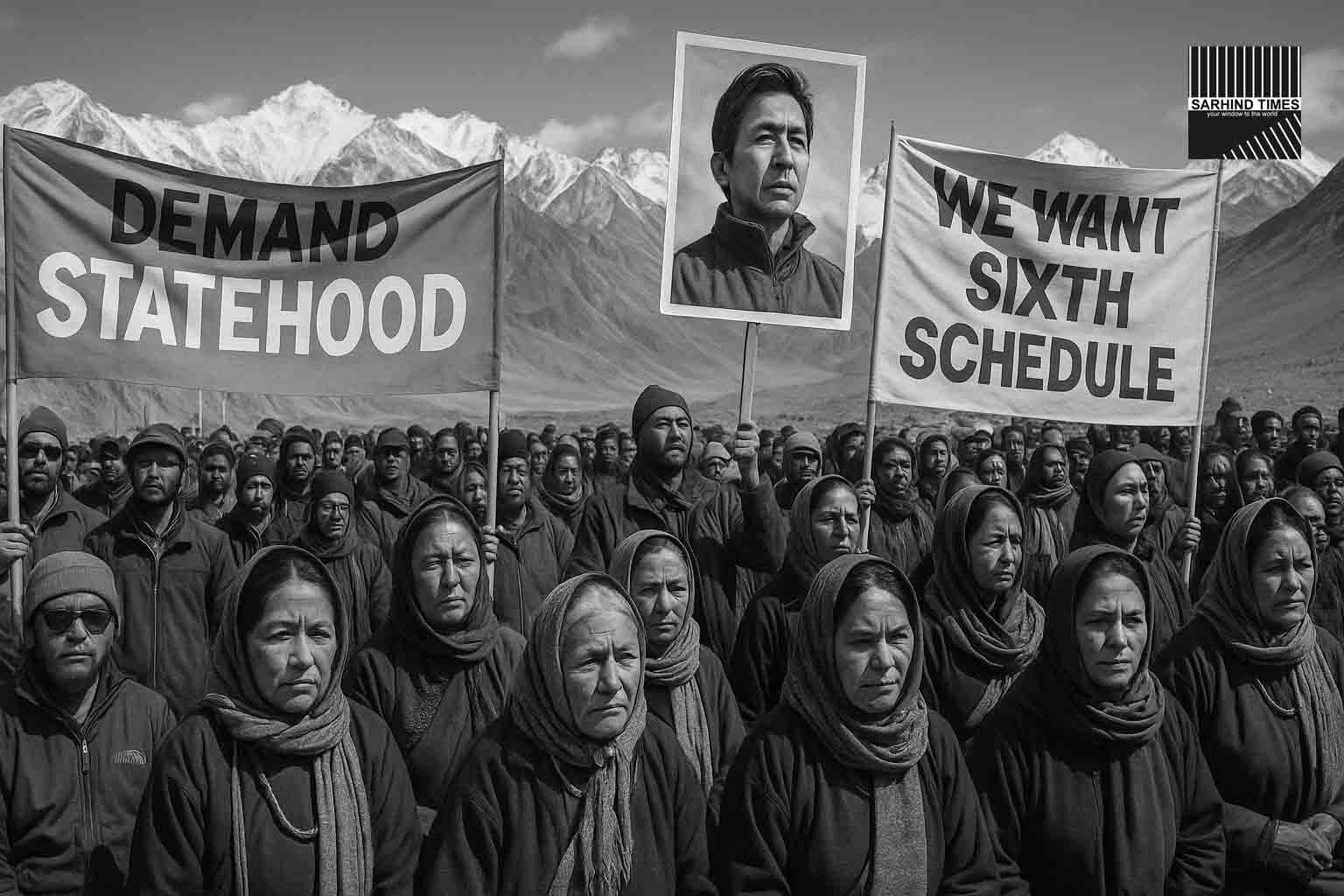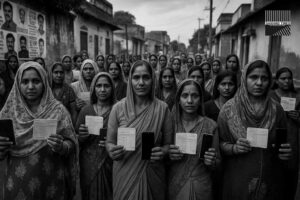Ladakh’s political and civil society landscape has entered a turbulent phase after the detention of renowned environmentalist Sonam Wangchuk sparked sharp criticism from local groups. The Apex Body, Leh (ABL), and the Kargil Democratic Alliance (KDA) have accused the Centre of attempting to delegitimise their peaceful agitation by portraying it as “anti-national.”
With four FIRs registered and nearly 40 individuals already in judicial custody, Ladakh’s demand for statehood and constitutional safeguards under the Sixth Schedule has acquired fresh urgency. The standoff underscores a deeper struggle—between a region seeking dignity, autonomy, and ecological protection, and a government balancing national security and political control in a sensitive border territory.
Sonam Wangchuk: A Symbol Beyond Activism
Sonam Wangchuk is not merely an activist. Known globally for his “ice stupa” innovation and his role in inspiring the Bollywood character of Phunsukh Wangdu in 3 Idiots, Wangchuk has become a moral voice for Ladakh. His campaigns have consistently emphasized sustainable development, ecological balance, and respect for local traditions.
By detaining him, authorities have not only targeted an individual but have inadvertently elevated him into a symbol of resistance. Protesters in Leh and Kargil see his treatment as proof of the government’s unwillingness to acknowledge Ladakh’s concerns.
The Protests and the Crackdown
Over the past weeks, thousands of Ladakhis staged demonstrations demanding:
- Statehood for Ladakh
- Sixth Schedule protections for tribal rights, land, and resources
- Safeguards for environment and employment
- A democratic assembly with real legislative powers
The protests remained largely peaceful, but clashes broke out in some areas leading to police action. Authorities claim FIRs were filed to maintain law and order, while civil society leaders argue that dissent is being criminalised.
- Four FIRs filed: Three naming Congress-linked councillors, one against “unidentified youths.”
- 39 arrested: Currently in judicial custody, sparking demands for immediate release.
- ABL boycott: Apex Body Leh announced it would skip a government-called informal dialogue in Delhi, citing loss of trust.
Historical Context: Ladakh’s Political Journey
Ladakh’s current agitation must be understood against the backdrop of its political history:
- 2019: Article 370 abrogation carved Ladakh out of Jammu & Kashmir as a Union Territory. While some welcomed the move, others feared loss of constitutional safeguards.
- No legislature: Unlike Jammu & Kashmir, Ladakh was granted UT status without a legislative assembly.
- Identity and ecology: Local leaders argue that without Sixth Schedule protections, Ladakh risks cultural erosion and ecological devastation from unchecked industrial projects.
The Sixth Schedule of the Constitution, applicable in certain northeastern states, empowers autonomous councils to safeguard tribal land, customs, and resources. Ladakhi groups demand similar guarantees.
The Government’s Position
The Union Government has maintained that Ladakh’s UT status has improved governance, security, and infrastructure. Officials point to:
- Direct central funding for projects without “middlemen.”
- Strategic importance: Ladakh borders both China and Pakistan, making it vital for national security.
- Tourism growth: Ladakh’s visibility as a destination has increased since 2019.
However, the refusal to concede statehood or Sixth Schedule protections has created a trust deficit. The Centre’s sporadic offers for dialogue, critics argue, lack credibility unless backed by time-bound commitments.
Civil Society Voices
Prominent voices in Ladakh describe the crackdown as disproportionate.
- ABL spokesperson: “By arresting Wangchuk and others, the government wants to colour our movement anti-national. But we are simply demanding our constitutional rights.”
- KDA leader: “This is not about separatism. It is about dignity, environment, and democracy.”
- Student activists: “We were told that becoming a UT would empower us. Instead, our voice has been silenced.”
Economic Stakes: Tourism, Ecology, and Livelihoods
Ladakh’s fragile economy rests on three pillars:
- Tourism: A key income source but highly vulnerable to political unrest.
- Ecology: Climate change threatens glaciers, water sources, and agriculture.
- Military presence: Provides employment but also strains local resources.
Prolonged unrest risks damaging Ladakh’s image as a peaceful tourist hub. Already, hotel associations report cancellations amid headlines of arrests and protests.
At the same time, unchecked infrastructure projects without local consultation—mining, hydropower, highways—could devastate the fragile Himalayan ecosystem. Wangchuk’s activism has consistently highlighted this ecological risk.
National Security Angle
From the Centre’s perspective, Ladakh cannot be viewed solely as a local issue. Its proximity to the Line of Actual Control (LAC) with China makes political control paramount. Delhi fears that granting excessive autonomy could complicate security operations.
However, experts warn that alienating Ladakh’s people could backfire by eroding trust in the Indian state—something Beijing would be quick to exploit.
Opposition Politics
National opposition parties have seized on Wangchuk’s detention to attack the government.
- Congress: Called it “a shameful attempt to muzzle democracy.”
- Left parties: Framed it as part of a “larger pattern of authoritarianism.”
- Regional leaders: From West Bengal to Tamil Nadu, opposition voices stressed solidarity with Ladakh.
The controversy has therefore transcended regional boundaries, feeding into the national debate on dissent and democracy.
The Road Ahead
For Ladakh, the way forward hinges on:
- Credible dialogue: Civil society demands a structured negotiation table with timelines.
- Safeguards: A roadmap to constitutional protections and a future assembly.
- Confidence-building: Immediate release of detained protesters, including students and political workers.
For Delhi, the challenge is to balance national security with democratic legitimacy. Suppressing voices like Wangchuk’s may yield short-term control, but risks long-term alienation.
Conclusion
The detention of Sonam Wangchuk has turned Ladakh’s simmering discontent into a national talking point. What began as a struggle for local autonomy is now a test of India’s democratic spirit.
The region’s demands—statehood, Sixth Schedule protections, environmental safeguards—are not secessionist but constitutional. How the government responds will shape not just Ladakh’s future but also India’s credibility in respecting democratic dissent.
As the snow settles on Ladakh’s mountains, its people wait for clarity—between promises and policies, between control and consensus, between silence and statehood.
#Ladakh #SonamWangchuk #Statehood #SixthSchedule #RightToProtest #Democracy #LadakhProtests #SarhindTimes




+ There are no comments
Add yours